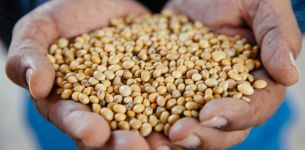A 2019 FAO and WHO report advised Member State governments to “develop national FBDG recommendations that define context-specific sustainable healt
Other content with the tag "Consumer behaviour".

Food-based dietary guidelines (FBDGs) provide country-specific guidance on what constitutes a healthy diet.

Unhealthy diets are a leading risk factor for non-communicable diseases and negatively impact environmental sustainability.

In this issue of we focused on the resilience of food systems through science and innovation featuring topics like:

In this December issue of Nutrition Connect's Newsletter, we reflected on the the strides that we have made over the past couple of months on this

Access to Nutrition Initiative (ATNI) has been commissioned to benchmark the world’s 25 largest food and beverage (F&B) companies’ lobbying-rel

Food reformulation is the process of altering the processing or composition of a food or beverage product, to improve its nutritional profile or to

Nutrition plays a key role in supporting the human immune system and reducing the risk of infections.

India is facing a rapidly escalating public health crisis of non-communicable diseases (NCDs) with millions suffering from diabetes, cancer, and ca

The significance of industrial processing, and in particular techniques and ingredients developed or created by modern food science and technology,

Ultra-processed foods (Nova group 4) are industrial formulations made by deconstructing whole foods into chemical constituents, altering them and r

UNICEF recognizes the importance of engaging business to achieve nutrition results for children.

Food affordability is an important determinant of food choice and access, driving dietary patterns, nutrition status and overall health and environ

Improving infant and young child feeding (IYCF) practices is key for reducing the high burden of malnutrition in Mozambique.

Over half the global population spends one third of their adult life at work, and a third of the global population also suffers from some f

Foodborne diseases are a significant cause of illness in low- and middle-income countries (LMICs).

Using a theory of change (TOC; a simplified definition of how and why an intervention is expected to work) or a programme impact pathway (PIP; a mo
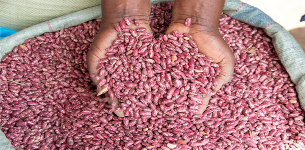
Biofortification of staple crops has the potential to contribute to reducing micronutrient deficiencies by increasing micronutrient intakes.

The Commercialisation of Biofortified Crop (CBC) programme, jointly led by the Global Alliance for Improved Nutrition (GAIN) and HarvestPlus, aims

Increased rural-urban migration has seen the world’s diet also becoming more ‘urbanised’, with meals cooked at home increasingly replaced b

PAHAL (Partnerships for Affordable Healthcare Access and Longevity) is USAID and IPE’s flagship innovative financing platform to promote health fin

In 2014, the National Ministry of Health of Indonesia requested GAIN to support the district governments of Malang and Sidoarjo in East Java Provin

This report evaluates two GAIN Nordic Partnership projects, one in Ethiopia and one in Zambia.

The Digital Framework is intended as a guide and source of inspiration for retailers and manufacturers as they formulate plans and objectives in th
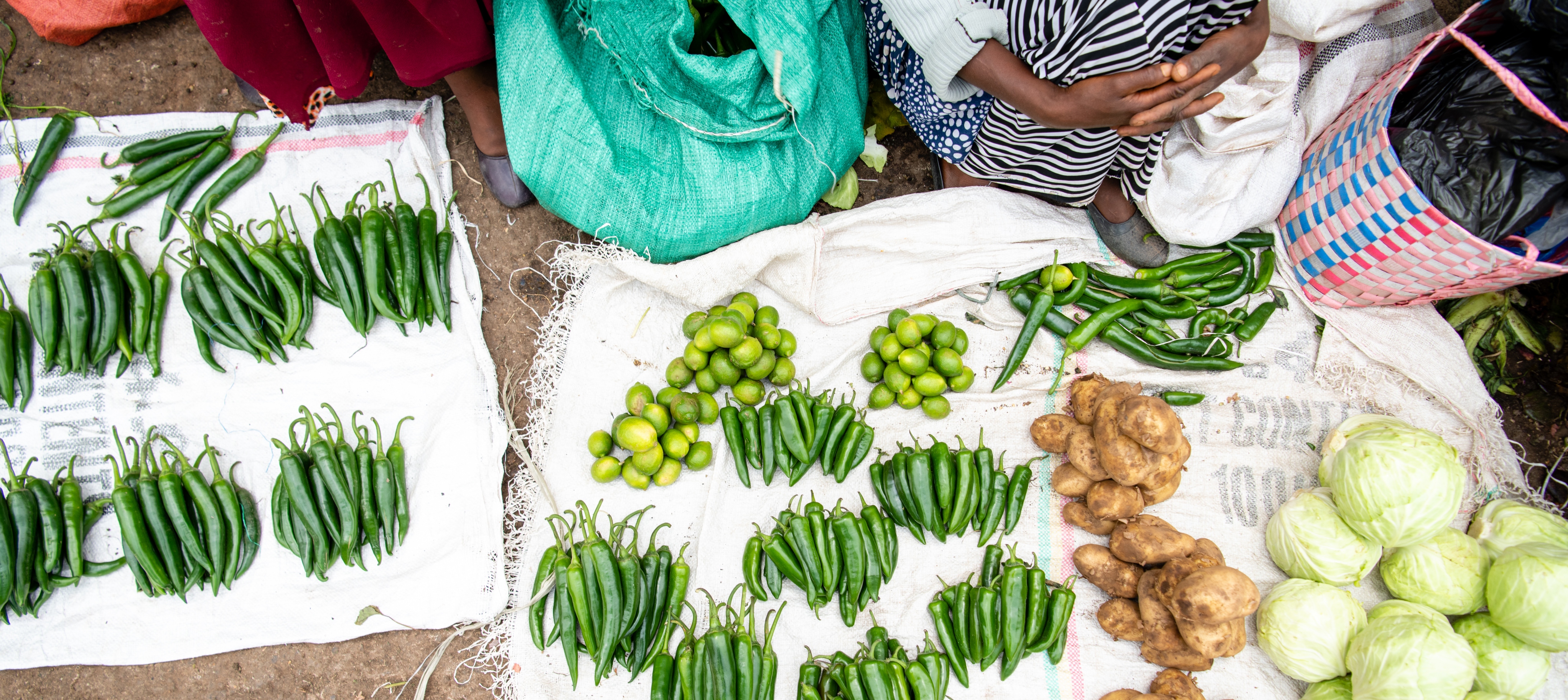
This report from the Drivers of Food Choice program highlights the importance of consumer demand when it comes
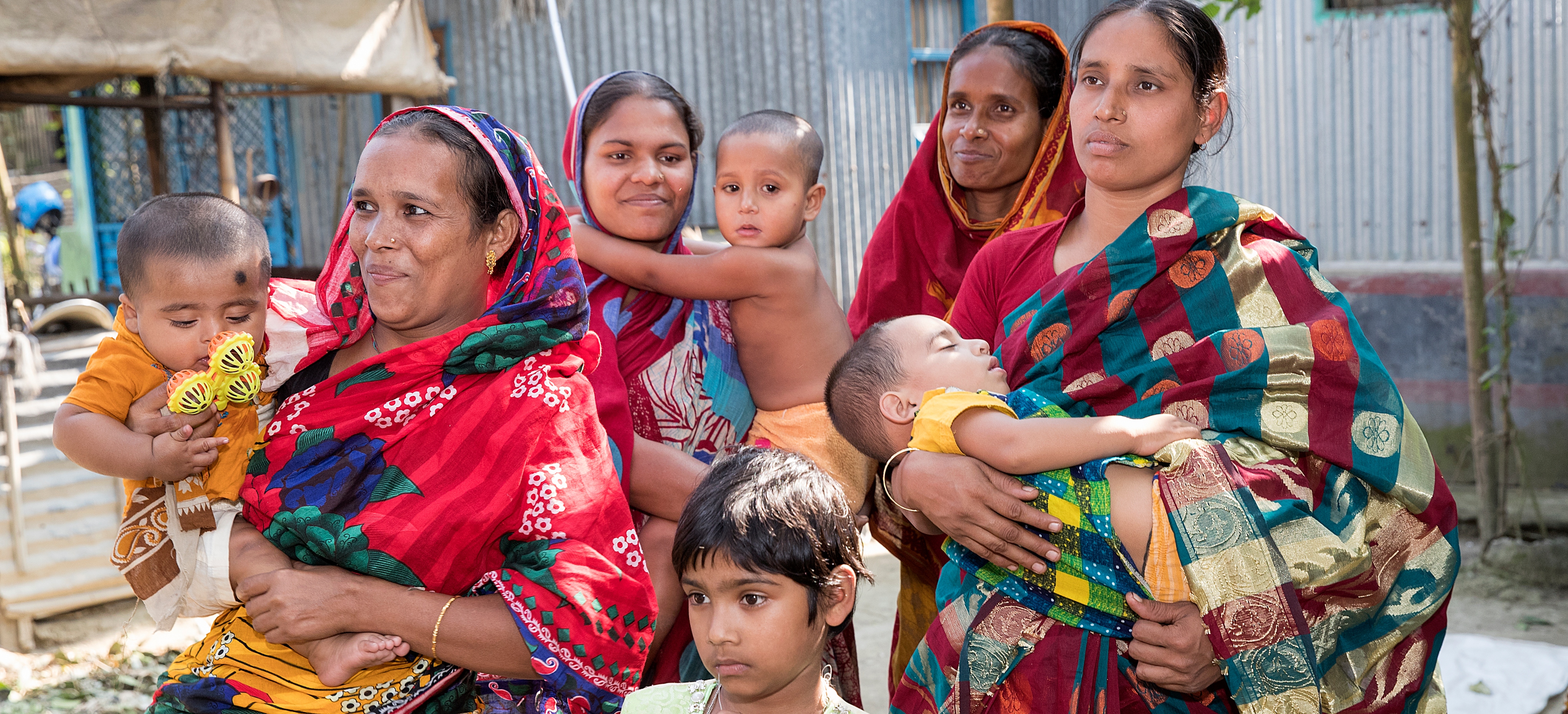
Though this paper has restricted access, it offers an innovative and effective methodology to improve the level

This peer reviewed paper from Feed the Future’s EatSafe consortium, led by GAIN, summarises prior research on t

This webinar from Feed the Future’s EatSafe program explores the critical link between food safety and nutritio

In this short yet compelling video, we see traditional markets through the eyes of both a consumer (Felicia) an

This book from the World Bank presents the landscape of food safety, particularly in low and middle incom

This peer review paper argues that taking a healthy diet perspective, instead of a narrower production-focused approach, in food system transformat

This peer-review article in BMJ Nutrition Prevent & Health highlights an important area where public and private sectors need to align: brand a

This report from EAT and GlobeScan looks at the opinions of over 30,000 consumers in 31 markets around the world about their definition of good, he

Vending Solutions is a vending machine company focused on healthy vending machine food item options, and was created in response to growing consume

Nutrition labels have become the norm for packaged foods in many countries, and can help consumers make informed food choices in terms of personal

Third ATNI COVID-19 report highlights corporate responses to the pandemic in India, Mexico and Nigeria.

This chapter from WBCSD's Food and Agriculture Roadmap series sets out three policy recommendations from the consumer perspective, which have impli

Diets for a better future: Rebooting and reimagining healthy and sustainable food systems in the G20 compares the nation

“People are recognising that our global food system is harming the planet – and us,” says Dr. Richard Swannel, Director of WRAP.

The pandemic is changing our eating habits and highlighting the necessity of better food waste and loss management.

This short article by the World Economic Forum is a must read for public and private actors working in the food system.

The Vegetables for All (VfA) project in northeastern Tanzania is a multi-sectoral initiative, implemented by private sector, NGOs, and knowledge in
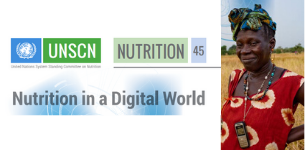
The theme of the 2020 report from the UN Standing Committee on Nutrition (UNSCN) is Nutrition in a digital world. The articles, research a

The Health Star Rating is a front-of-pack labelling system that rates the overall nutritional profile of packaged food and assigns it a rating from

In 2018, GAIN and HarvestPlus created a partnership with the shared ambition to expand coverage of biofortified nutrient dense foods to at least 20

This report highlights progress made towards achieving SDG Target 12.3: “By 2030, halve per capita global food waste at the retail and consumer

This study looks at how foods targeted towards children have changed between 2009 and 2017 in Canada.

New study on nudges for shaping consumer behaviour towards healthier food choices looks at 299 results from 96 field experiments.

This special report from the IPCC highlights the impact of land use and agricultural practices on climate change.

This podcast explores US agricultural policy through a Cold War lens, discussing the ‘Farms Race’ between the US and the Soviet Union.
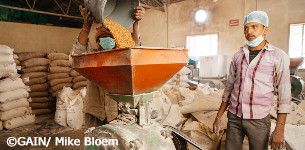
This paper covers the factors relating to public and private sector commitment to food fortification and crop b

The 44th edition of the UNSCN Nutrition - Food environments: Where people meet the food system - looks at how food environments influence
EAT and the World Business Council for Sustainable Development (WBCSD), together with Food Reform for Sustainability and Health (FReSH) convened a

Priobiotics have become one of the most popular nutritional supplements in recent years. This mini review paper shows that this is in part caused b

This is an uplifting evidence-based assessment of what it takes to successfully campaign against corporate power.
This paper assesses how employee nutrition impacts on productivity, absenteeism, and healthcare costs.
This article looks at whether nutrition information on packaging affects online sales.
The amount of food people consume away from home is rising in the U.S.
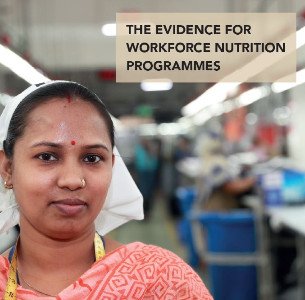
This set of briefs from GAIN provides evidence to support the effectiveness of workforce nutrition programmes.

In 2018, FReSH hosted Science to Solutions Dialogues (SSD) between
The Global Alliance for Improved Nutrition’s Marketplace for Nutritious Foods program sparks private sector production and marketing of nutritious
The Global Alliance for Improved Nutrition’s Marketplace for Nutritious Foods program sparks private sector production and marketing of nutritious
The Global Alliance for Improved Nutrition’s Marketplace for Nutritious Foods program sparks private sector production and marketing of nutritious
The Global Alliance for Improved Nutrition’s Marketplace for Nutritious Foods program sparks private sector production and marketing of nutritious
The Global Alliance for Improved Nutrition’s Marketplace for Nutritious Foods program sparks private sector production and marketing of nutritious
Sight and Life, DSM, and John Hopkin’s Bloomberg School of Public Health have come together to publish lessons from a four decade partnership.

Seventy-five percent of the global food supply comes from 12 plant and five animal species – this report by WWF, Washington University, and food gi
This blog, by Alex Rees, asks some difficult questions – namely, do agricultural investments in Africa come anywhere close to the recommendations l

This review gives an overview of food-based dietary guidelines by region and date, alongside looking at key messages about certain produce.

The Committee on World Food Security is a collaboration of international agencies, civil society, and the private sector focusing on policy issues

Partnership between Ipsos – a social market and research company, and The Bill and Melinda Gates Foundation.
FoodSwitch is an example of innovation that is empowering consumers to make smarter nutrition decisions.
Multinationals have the power to change people’s relationship with food – as this short opinion piece demonstrates.
Partnership between Unilever, DSM, Gain, Mondelez, U.N.

The cost of a nutritious meal is not fixed and it can be heavily dependent upon the season.

Many mothers experience barriers to maintaining a breastfeeding relationship with their infants after returning to work.
Impact of increasing the proportion of healthier foods available on energy purchased in worksite cafeterias: A stepped wedge randomized

An evaluation of 21 systematic reviews looking at the effect of workplace dietary interventions on health outcomes.
China has undergone rapid change in recent years which has impacted on the health of its workforce.
This resource from the Food and Drink Federation is a compilation of case studies looking at the employee health practices of leading food and drin
LifeDojo is an online forum dedicated to employee health.

While this review does not specifically focus on public private engagement, or on nutrition, it has important implications for everyone working on
Food Fortification in a Globalised World is based on 50 years’ experience across public and private sectors.
This short video shows the successes of public private collaboration in South Africa.

This is a great podcast from The Doctor's Farmacy that touches on a lot of important aspects of public private engagement for nutrition. Host Dr.
Nearly half of India’s population suffer from micronutrient deficiency.

In 2012, Convergence Center for Policy Resolution embarked on an innovative approach to addressing America's obesity epidemic and other nutrition-r

In this video, watch the forum discussion with Harvard professor and lead author of the EAT Lancet commission on healthy diets, restauranteur, and

Leading experts and co-chairs of the EAT-Lancet Commission, Prof Walter Willett and Prof.

Working paper by the World Resources Institute focuses on three changes to consumption patterns that can ensure a sustainable food system.

Between now and 2050, changes in global population and income levels will have huge implications for the global food system.
Academic article from 2014 looking at effective workforce health promotion strategies.
Companion document to the United States National Center for Chronic Disease Prevention and Health Promotion Food Service Guidelines in Public Servi
The United States National Center for Chronic Disease Prevention and Health Promotion have drafted guidelines for public food services aimed at gov
Peer review article in The Journal of the Academy of Nutrition and Dietetics looking at the frequency of workforce consumption and the nutritional

Each year, the Global Nutrition Report provides a snapshot of the state of malnutrition.

This 2019 Lancet Commission Report looks at systemic causes for the triple problems of obesity, undernutrition, and climate change.

A highly recommended resource on consumer demand from the perspective of public private engagement.

Base of the pyramid typically refers to the largest and poorest socio-economic grouping, and it is estimated that people in this ‘category’ spend u
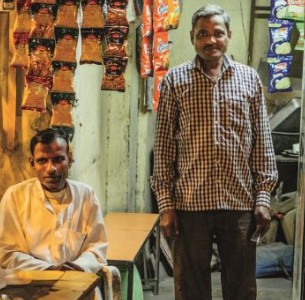
Improving diets in an era of food market transformation: Challenges and opportunities for engagement between the public and private sectors
Paper by Sight and Life puts forward a framework for public private engagement in nutrition.

This report, compiled for the European Competitiveness and Sustainable Industrial Policy Consortium, gives a detailed look into the impact of food
In the U.K.’s Budget 2016 a soft drink industry levy was announced to reduce consumption of sugary soft drinks.

The Harvard Kennedy School Corporate Responsibility Initiative looks at what is needed to boost investment in value chains, especially from small a

Policy brief by the Global Panel on Agriculture and Food Systems for Nutrition looking at the evidence for gov
The Food Climate Research Network calls for a more equitable balance of power within the food system.
‘It is through core business that truly transformative impact will happen,’ says John Fallon, Chief Exec, Pearson.
Technical report from the Sustainable Development Solutions Network on the Post-2015 Development Agenda.
Dietary Guidelines for Americans set the country’s nutrition policy and help direct over $80 billion federal spending.
Discussion paper by the Food Climate Network addressing the relationship between food and environmental sustainability.
This report from FAO and the Food Climate Research Network looks at national dietary guidelines as a practical intervention to improve nutrition an
In this policy brief, the Global Panel makes the case that healthy diets are a foundation underpinning positive progress towards the Sustainable De
This report summarizes the findings of a workshop for representatives of the Tanzanian government, development partners, civil society, and private

Industry leaders look at how consumer choices are driven by health, wellness, and sustainability.
Health gossip is rife in Indonesia.
This up-to-date market analysis focuses only on answering the most important questions that all companies face.
Presentation for the Wellcome Trust looking at the role of policy on public food choices.
Given that sugary drinks are endemic and that obesity is on the rise, many drinks manufacturers have launched social responsibility campaigns.
As a systematic and rigorous analysis, this Lancet paper provides perspective on the issue of consumer demand creation by systematically reviewing
The Access to Nutrition Index has produced a 2018 scorecard for Campbell Soup company.
Principles guiding Unilever’s food and beverage marketing communications, including a promise not to direct any marketing communications to childre
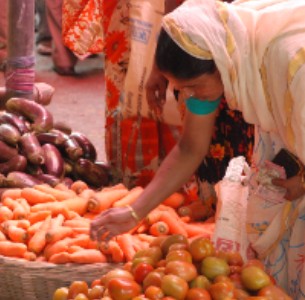
Presentation by the BoP Innovation Centre – an independent foundation created to deliver a one-stop shop for business, investors, and advisors with
A look into how business models can be reshaped to respond to changing consumer preferences.
A technical briefing for anyone working on behavior change initiatives at scale.
Lawrence Haddad, Executive Director at GAIN and winner of the World Food Prize 2018 calls for a revolution in the way we create demand for nutritio
It is far too easy to read expiration dates and food labels and err on the side of caution.
The Consumer Goods Forum seeks to secure consumer trust and drive positive change by bringing together over 400 consumer goods re

Alive & Thrive is an initiative that aims to improve infant and young child feeding practices by increasing rates of exclusiv

This paper reviews 41 workforce nutrition interventions published between 1995 and 2006 in the South African Journal of Clinical

Blueprint for Business Action on Health Literacy supports the Europe 2020 strategy and the renewed EU strategy for Corporate Soci

This book by the International Labour Organisation asks important questions about food at work, including: employment conditions, wages
This short report gives an overview of rice fortification literature indexed in PubMed, including examples of successful public private engagement
The US Food and Drug Administration (FDA) regulates the addition of iodine to infant formulas, the iodisation of salt, and the addition of salt and
The Micronutrient Forum is a convener of academics, policy makers, and program implementers.

A concise account of lessons learned on salt and iron iodization by world renowned economists, as part of the costs benefit analysis on leading dev

This blog by Brian Lipinski at the World Resources Institutes draws attention to a new international day: 28 April - Stop Food Waste Day.

For a compilation of statistics and infographics on global food loss and waste look no further!

Recommendations from the Global Panel on Agriculture and Food Systems are targeted at policy makers in low- and middle-income countries

An excellent example of public private engagement, FAO and

The Food Waste Atlas tracks the world’s food loss and waste across the entire food system.

This is the third annual progress report on behalf of Champions 12.3, a coalition of executives from governments, businesses, international organiz

